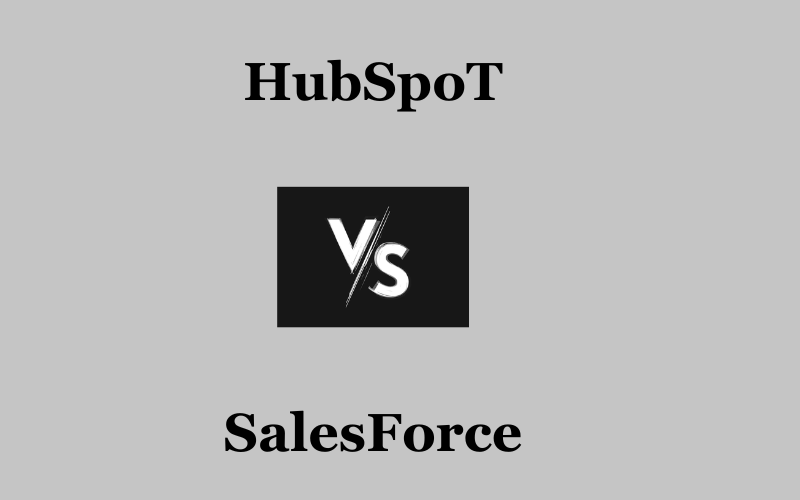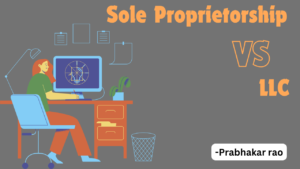Pricing of HubSpot vs Salesforce
When comparing the pricing of HubSpot and Salesforce (Hubspot vs salesforce), it’s important to consider the specific needs of your business.
HubSpot offers a range of pricing plans starting from $45 per month for their Starter plan, which includes basic CRM and marketing tools. The Professional plan starts at $800 per month and includes more advanced features like marketing automation and sales acceleration. For larger businesses, the Enterprise plan is available starting at $3,600 per month, offering even more advanced features and support.

Salesforce, on the other hand, offers a more modular pricing structure. Their Sales Cloud starts at $24 per user per month, but additional features like marketing automation and customer service tools can be added on with their Marketing Cloud and Service Cloud, which start at $400 and $25 per user per month, respectively. The pricing can vary based on the number of users and the specific features required.

Features: HubSpot vs Salesforce
HubSpot and Salesforce offer a range of features designed to help businesses manage their sales, marketing, and customer service operations. Here’s a comparison of some key features:

CRM: Both HubSpot and Salesforce offer robust CRM (Customer Relationship Management) systems. HubSpot’s CRM is known for its user-friendly interface and seamless integration with other HubSpot tools. Salesforce’s CRM is highly customizable and offers a wide range of features for managing contacts, leads, and opportunities.
Marketing Automation: HubSpot’s marketing automation tools are well-regarded for their ease of use and comprehensive features, including email marketing, lead scoring, and workflow automation. Salesforce’s Marketing Cloud offers advanced marketing automation capabilities, including personalized customer journeys and AI-powered analytics.
Sales Tools: HubSpot’s Sales Hub provides tools for managing contacts, deals, and tasks, as well as email tracking and meeting scheduling. Salesforce’s Sales Cloud offers similar features, with additional capabilities such as opportunity forecasting and sales performance analytics.
Customer Service: HubSpot’s Service Hub includes features for ticketing, live chat, and knowledge base management, all integrated with the CRM for a seamless customer experience. Salesforce’s Service Cloud offers similar features, with additional capabilities for customer service automation and case escalation.
Integration: HubSpot offers a wide range of integrations with other software tools, allowing businesses to connect their HubSpot account with tools like Zapier, Shopify, and Slack. Salesforce also offers a robust integration ecosystem, with integrations available for popular tools like Microsoft Outlook, Google Apps, and Dropbox.

Integrations: HubSpot vs Salesforce
When choosing a CRM platform, it’s important to consider the integrations available to connect your CRM with other tools and systems your business uses. Here’s how HubSpot and Salesforce compare in terms of integrations:
HubSpot Integrations: HubSpot offers a wide range of integrations with popular tools and platforms, including email marketing services like Mailchimp and Constant Contact, e-commerce platforms like Shopify and WooCommerce, and productivity tools like Google Workspace and Microsoft Office 365. HubSpot also has a robust API that allows for custom integrations with other software.

Salesforce Integrations: Salesforce also offers a vast array of integrations through its AppExchange marketplace, with thousands of third-party apps and integrations available. Salesforce integrates seamlessly with popular tools like Microsoft Outlook, Google Apps, and Dropbox, as well as marketing automation platforms like Marketo and Pardot. Salesforce also provides APIs for custom integrations.
User Interface: HubSpot vs Salesforce
The user interface (UI) of a CRM platform plays a crucial role in how effectively users can navigate and utilize its features. Here’s a comparison of the user interfaces of HubSpot and Salesforce:
HubSpot UI: HubSpot is known for its intuitive and user-friendly interface. The dashboard is clean and organized, with easy access to key features such as contacts, deals, and reports. The UI is designed to be visually appealing and easy to navigate, making it ideal for users who value simplicity and ease of use.

Salesforce UI: Salesforce offers a more complex and customizable UI compared to HubSpot. While this provides a high level of flexibility for users to customize their workspace, it can also be overwhelming for new users. Salesforce’s UI can be customized extensively to suit the specific needs of different teams and organizations.

Customer Support: HubSpot vs Salesforce
Customer support is a critical aspect of any CRM platform, as it can greatly impact the user experience and the ability to resolve issues quickly. Here’s a comparison of the customer support offered by HubSpot and Salesforce:
HubSpot Customer Support: HubSpot is known for its excellent customer support, offering a range of resources including a knowledge base, community forums, and email support. They also provide phone support for users on higher-tier plans. HubSpot’s customer support team is responsive and knowledgeable, helping users resolve issues promptly.
Salesforce Customer Support: Salesforce also offers comprehensive customer support, including a knowledge base, community forums, and email support. They provide phone support for users on certain plans, with higher-tier plans offering dedicated support teams. Salesforce’s customer support is known for being reliable and effective, with experts available to assist users with any issues they may encounter.
Customization: HubSpot vs Salesforce
Customization options are crucial for tailoring a CRM platform to meet the specific needs of a business. Here’s a comparison of the customization capabilities of HubSpot and Salesforce:
HubSpot Customization: HubSpot offers a high level of customization, allowing users to personalize their CRM experience. Users can create custom properties, workflows, and email templates to suit their unique requirements. HubSpot also offers a range of integrations with third-party tools, further enhancing its customization capabilities.
Salesforce Customization: Salesforce is renowned for its extensive customization options, offering a highly flexible platform that can be adapted to meet the needs of any business. Users can create custom objects, fields, and workflows, as well as customize the UI to suit their preferences. Salesforce also offers a wide range of third-party integrations to further extend its functionality.
Scalability: HubSpot vs Salesforce
Scalability is a key consideration for businesses looking to invest in a CRM platform, as it determines how well the platform can grow with their business. Here’s a comparison of the scalability of HubSpot and Salesforce:
HubSpot Scalability: HubSpot is suitable for businesses of all sizes, offering scalable pricing plans and a range of features that can accommodate the needs of small businesses to large enterprises. HubSpot’s flexible pricing model allows businesses to upgrade or downgrade their plans as needed, making it a scalable option for businesses experiencing growth.
Salesforce Scalability: Salesforce is known for its scalability, making it a popular choice for large enterprises with complex CRM needs. Salesforce’s platform is designed to handle large volumes of data and users, making it a robust solution for businesses that anticipate significant growth. Salesforce also offers a range of scalability options, including customizable workflows and integrations with other business systems.
Mobile Accessibility: HubSpot vs Salesforce
Mobile accessibility is essential for businesses that require their CRM to be accessible on the go. Here’s a comparison of the mobile accessibility of HubSpot and Salesforce:
HubSpot Mobile Accessibility: HubSpot offers a mobile app for iOS and Android devices, providing users with access to key CRM features on their mobile devices. The app allows users to manage contacts, deals, and tasks, as well as access analytics and reports. HubSpot’s mobile app is well-designed and user-friendly, making it easy for users to stay productive while on the move.
Salesforce Mobile Accessibility: Salesforce also offers a mobile app for iOS and Android devices, providing users with access to their CRM data from anywhere. The app allows users to view and update records, collaborate with team members, and access dashboards and reports. Salesforce’s mobile app is highly customizable, allowing users to tailor the app to their specific needs.
Analytics and Reporting: HubSpot vs Salesforce
Analytics and reporting are crucial for businesses to track their performance and make informed decisions. Here’s a comparison of the analytics and reporting capabilities of HubSpot and Salesforce:
HubSpot Analytics and Reporting: HubSpot offers robust analytics and reporting tools that provide insights into marketing, sales, and customer service performance. Users can track key metrics such as website traffic, email engagement, and sales pipeline performance. HubSpot’s reporting dashboards are customizable, allowing users to create and share reports tailored to their needs.
Salesforce Analytics and Reporting: Salesforce offers powerful analytics and reporting capabilities through its Einstein Analytics platform. Users can create interactive dashboards and reports to visualize data from multiple sources, including CRM data, external data sources, and third-party apps. Salesforce’s reporting tools are highly customizable, allowing users to drill down into data to uncover insights.
Community and Ecosystem: HubSpot vs Salesforce
The community and ecosystem surrounding a CRM platform can greatly enhance the user experience by providing support, resources, and integrations. Here’s a comparison of the community and ecosystem of HubSpot and Salesforce:
HubSpot Community and Ecosystem: HubSpot has a vibrant community of users, partners, and developers who actively engage in forums, events, and online resources. The HubSpot Community is a valuable source of support and knowledge sharing, with users and experts helping each other solve problems and share best practices. HubSpot also has a robust ecosystem of integrations, with a marketplace offering a wide range of third-party apps and tools that extend the functionality of the platform.
Salesforce Community and Ecosystem: Salesforce has one of the largest and most active communities in the CRM industry, with a wealth of resources available to users, developers, and partners. The Salesforce Community is a hub for collaboration and learning, with users sharing insights, tips, and solutions. Salesforce also has an extensive ecosystem of integrations through its AppExchange marketplace, offering thousands of apps and integrations that enhance the capabilities of the platform.





Pingback: Intercom vs Hubspot : Best comparison and integration guide that you need in 2024 - RPMSNKHU Reviews
Pingback: Boosting Efficiency in 2024 with Aircall HubSpot Integration (Ultimate Best way) - RPMSNKHU Reviews